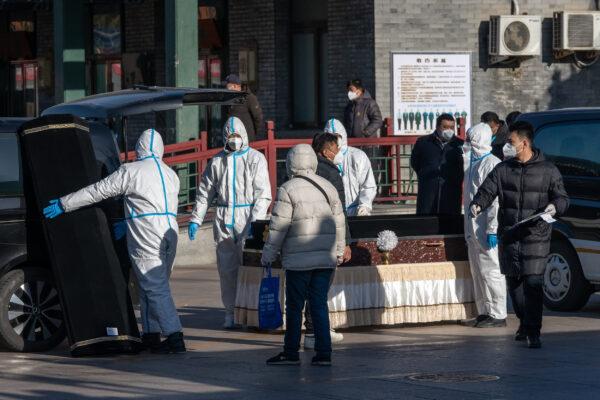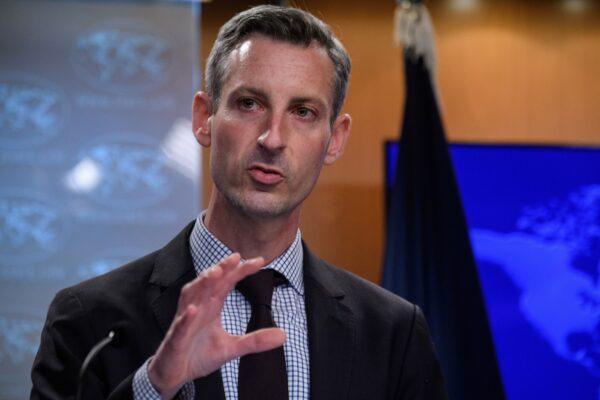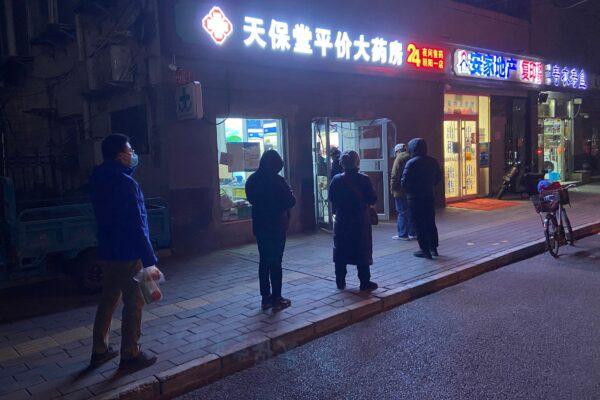As a mass wave of COVID infections sweeps through China, the World Health Organization (WHO) and governments around the world are anxious about the potential emergence of a dangerous new virus variant that could further drag down the global economy.
With Beijing now gripped by the virus, the variant has also rapidly spread across China. From the northeastern city of Shenyang to the eastern city of Shanghai, to Chongqing in the southwest and Guangzhou and Shenzhen in the south, this wave of COVID-19 infections has overwhelmed China’s health system.
WHO Seriously Concerned
The patients in this wave of infections are suffering from high fever, cough, and lower respiratory infections, which closely resemble those in Wuhan in 2020 and are very different from the mild symptoms caused by other described Omicron variants. With the virus rapidly spreading through the large population in China, there are concerns that a dangerous new virus variant is emerging, which may affect the whole world.On Dec. 7, WHO head Tedros Adhanom Ghebreyesus predicted that the COVID-19 pandemic would end next year.

However, after seeing the storm of infections rapidly sweeping China that hasn’t peaked, WHO officials are now seriously concerned adding that it’s now too early to declare the end of the pandemic emergency.
“The question is whether you can call it post-pandemic when such a significant part of the world is actually just entering its second wave,” WHO advisor Dutch virologist Marion Koopmans told the media on Dec. 20.
Projections suggest an explosion of cases affecting 60 to 90 percent of the Chinese population could see millions of deaths early next year.
“WHO is very concerned over the evolving situation in China,” Tedros said at a recent weekly news conference. He called on the Chinese regime to provide detailed information on the disease severity, hospital admissions, and intensive care requirements, as the low numbers that the regime has officially reported are questionable.
US Willing to Help

U.S. State Department’s spokesman Ned Price expressed concern over COVID in China for two consecutive days during press briefings.
The World’s Factory
China is the world’s second largest economy and plays an import role in global supply chains as the “world’s factory.”Price also expressed concerns over the economic impact of China’s COVID situation. “It’s important not only for the PRC, but also for the continued economic recovery of the international community that the PRC is in a position to get this outbreak under control.”
U.S. Deputy Treasury Secretary Wally Adeyemo said on Tuesday that the United States is already feeling the economic impact of this round of China’s COVID-19 spike due to disruption of the global supply chain.
“It’s important that all countries focus on getting people vaccinated and making testing and treatment easily available,” Price told reporters on Tuesday of the view of the U.S. government.
“The U.S. is the largest donor of COVID-19 vaccines around the world. We’re prepared to continue to support people around the world, including in China, with this and other COVID-related health support,” Price said.
He stressed, “This is profoundly in the interests of the rest of the world. Our COVID-19 vaccines are safe and effective, and we have provided them to countries around the world, regardless or in spite of any political disagreements.”

Fever Medicine Shortage
The medical system in China is ill prepared for pandemics, with citizens now facing a lack of drug stockpiles, ICU beds, ventilators, and other healthcare tools.Pharmacies in China were ordered to ban or control the sale of cold and flu medication under the “zero-COVID” policy to prevent residents from using over-the-counter drugs to reduce fevers and avoid illness detection, as they didn’t want to be forced to do PCR tests or be sent to centralized quarantine facilities.

Residents weren’t able to stock up on basic medicines at home before the government’s lifting of its zero-COVID policies, although the wave of infections had already started before this change.
The regime’s abrupt COVID policy change, without preparation or plan, also caught hospitals, clinics, and pharmacies across the country off guard.
Pharmacies have sold out the most basic fever and cold medicines, while hospitals are also running out of medicines that treat COVID symptoms, as well as oxygen and ventilators, as they were given little to no notice about needing to stockpile.
A mainland Chinese medical information media “Cyberland” published an article on Dec. 20 disclosing that the current severe shortage of antipyretic drugs is directly caused by the strict control of the fever drugs under zero-COVID over the past three years, including the most sought after “Ibuprofen.”
At the same time, China is world’s largest producer and exporter of Ibuprofen, accounting for a third of global production.
The article quoted an employee of a pharmaceutical company saying that because of government control, “Patients basically didn’t stock up on medicines, and pharmacies were not allowed to sell them. Many companies and pharmacies that make and sell the fever drugs have faced broken capital chains and have closed down over the past three years.”
Now, COVID-19 restrictions have been suddenly lifted, with many pharmaceutical companies having not received any notice in advance to prepare for production. “Suddenly, they are facing difficulties in increasing production,” the employee said.
Meanwhile, some pharmaceutical factories that make Ibuprofen, including some suppliers and warehouses, have been taken over by local authorities in the name of “prioritizing the supply to local hospitals and large pharmacies.”




